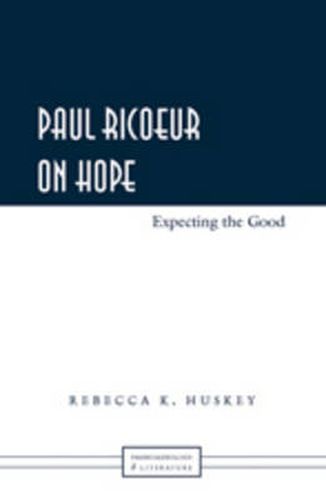Readings Newsletter
Become a Readings Member to make your shopping experience even easier.
Sign in or sign up for free!
You’re not far away from qualifying for FREE standard shipping within Australia
You’ve qualified for FREE standard shipping within Australia
The cart is loading…






This title is printed to order. This book may have been self-published. If so, we cannot guarantee the quality of the content. In the main most books will have gone through the editing process however some may not. We therefore suggest that you be aware of this before ordering this book. If in doubt check either the author or publisher’s details as we are unable to accept any returns unless they are faulty. Please contact us if you have any questions.
In order to examine fully the nature of human beings, Paul Ricoeur crossed disciplinary boundaries in his work, moving from phenomenology to social and political thought, hermeneutics, and ethics. Running throughout Ricoeur’s work - particularly Fallible Man, Time and Narrative, Oneself as Another, and his shorter pieces on hermeneutics, ethics, and religion - is a theme of the human capacity for hope. According to Ricoeur, hope is a capacity of expectation, oriented toward some future action, which aims at a good for self and others. The conditions for the possibility of hope are the unity and difference that exist within the self in transcendental, practical, and effective realms, and the self’s ability to narrate, which is made possible by the self’s existence within, and understanding of, time. Our capacity for hope is understood via the symbols of good and evil found in myths and sacred writings. Furthermore, hope is not limited to those who are religious; atheists may be just as hopeful as the devout. Exploring the nature of hope in Ricoeur’s work allows for a greater understanding of hope and a greater ability to cultivate hope in oneself and others.
$9.00 standard shipping within Australia
FREE standard shipping within Australia for orders over $100.00
Express & International shipping calculated at checkout
This title is printed to order. This book may have been self-published. If so, we cannot guarantee the quality of the content. In the main most books will have gone through the editing process however some may not. We therefore suggest that you be aware of this before ordering this book. If in doubt check either the author or publisher’s details as we are unable to accept any returns unless they are faulty. Please contact us if you have any questions.
In order to examine fully the nature of human beings, Paul Ricoeur crossed disciplinary boundaries in his work, moving from phenomenology to social and political thought, hermeneutics, and ethics. Running throughout Ricoeur’s work - particularly Fallible Man, Time and Narrative, Oneself as Another, and his shorter pieces on hermeneutics, ethics, and religion - is a theme of the human capacity for hope. According to Ricoeur, hope is a capacity of expectation, oriented toward some future action, which aims at a good for self and others. The conditions for the possibility of hope are the unity and difference that exist within the self in transcendental, practical, and effective realms, and the self’s ability to narrate, which is made possible by the self’s existence within, and understanding of, time. Our capacity for hope is understood via the symbols of good and evil found in myths and sacred writings. Furthermore, hope is not limited to those who are religious; atheists may be just as hopeful as the devout. Exploring the nature of hope in Ricoeur’s work allows for a greater understanding of hope and a greater ability to cultivate hope in oneself and others.